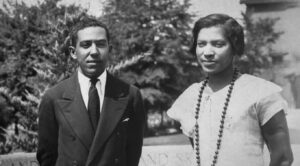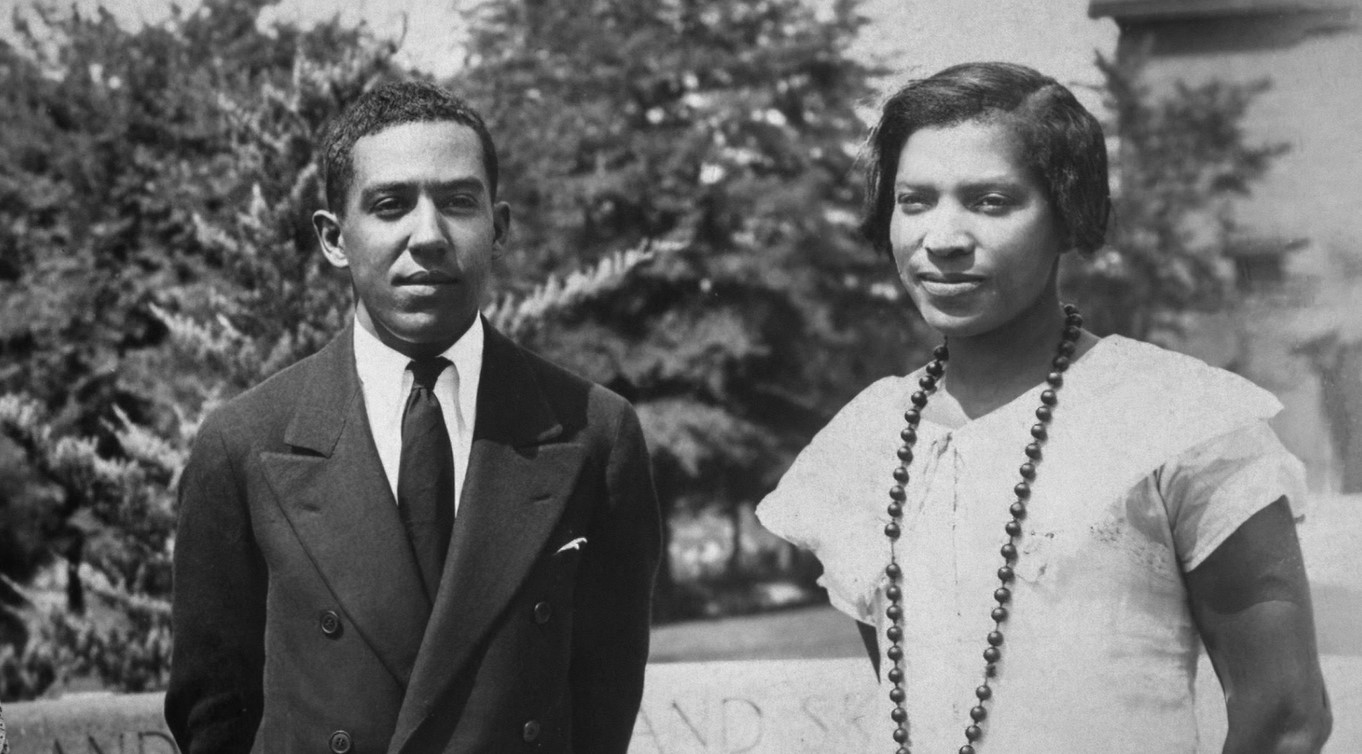Movie Info
Movie Info
- Director
- Tracy Heather Strain
- Run Time
- 1 hour and 45 minutes
- Rating
- PG-13
VP Content Ratings
- Violence
- 1/10
- Language
- 1/10
- Sex & Nudity
- 2/10
- Star Rating

Zora Neale Hurston was perhaps a genius born too soon, always an outsider, according to this fascinating documentary written and directed by Tracy Heather Strain. An episode of PBS’s The American Experience, it was aired on January 17, 2023, and is still available for streaming on PBS. If, like myself, you missed it, now, March being Women’s History Month, is a good time to catch up with it.
Zora’s story is well told by narrative (read by Vanessa Williams), photos, archival footage—a large amount shot by Zora herself), interviews with several anthropologists, historians, and writers, and even recording of Zora singing folk songs she had learned from the people she was studying.
We learn that she was born in Alabama, but raised with 7 siblings in the all Black town of Eatonville, Florida. Her preacher father was very strict, but her mother was warm and loving. One of the interviewees relates that Mrs. Hurston told the girl to “jump at the sun, we might not land on the sun but at least we would get off the ground. ” The little girl spent hours on the front porch of the local store absorbing the stories of the adults. Later she would say that much of what she had learned of folklore was when she was a child.
Unfortunately, Zora’s mother died when the girl was 13. Her father soon remarried but sent her and a sibling off to school. He stopped paying for her so that she had to work at cleaning to pay her expenses. For reasons not explained she was trundled off to various relatives so that she missed out on high school and drifted along for well over a decade. Eventually moving to Baltimore, she found work, and representing herself as still a teenager, she was able to take night courses enabling her to finish high school. Eventually she was able to attend Howard University where she came into her own intellectually. Then came Barnard College in New York City where she met Frank Boaz, one of the leading anthropologists of the age.
The film goes into considerable detail of her work under Boaz, who had been changing anthropology from a pseudoscience justifying the superiority of the white race over African Americans. She also secured financial aid, actually a job, from white philanthropist Charlotte Osgood Mason. Flushed with enough money to buy a car and an expensive movie camera, Zora traveled South between 1927 and 1932. Visiting lumber camps and mines, she protected herself by strapping on a pistol. In Alabama she interviewed and filmed Cudjoe Kazzola Lewis, the last living slave brought from Africa aboard the slaver Clotilda just before the Civil War.
Zora published during this period numerous articles short stories, plays, and novels, Their Eyes Were Watching God being the most famous of the latter (and the only one that I have read). She used Negro dialect and resisted publishers wanting to change it to attract white readers. She became a leader in the Harlem Renaissance and a friend of Langston Hughes, though the two would split over their disagreements about the play they were writing together.
Her approach to anthropology was counter to the detached view of academics, she participating with her subjects in order to gain their trust. In one movie sequence we see her playing drums with a folk band. Her collections of folk tales songs, dances, games, and interviews with African Americans in the South and Blacks in the Caribbean are highly values.
She fell into obscurity later in life, resorting to work as a maid in the late 50s and dying of heart disease on January 28, 1960. It is fitting that in 1975 another African American writer Alice Walker wrote her book “In Search of Zora Neale Hurston, which revived interest in the woman.
Though the PBS film is almost two hours, I now realize it is able to give us just part of the story of this remarkable woman. I do not recall anything about her marriages, nor is there much about her conservative politics—although there is mention that she was not an admirer of the Supreme Court decision in 1954 desegregating schools. She was not a participant in the Civil Rights Movement, either. And her views on religion went far from that of her father, she believing that prayer and such were signs of weakness that were not needed. For more details on her life I urge you to se the Wikikedia article Zora Neale Hurston. This will provide lots more facts, but to see and hear this marvelous woman, watch the documentary.
Sorry, not time to write questions for this film

